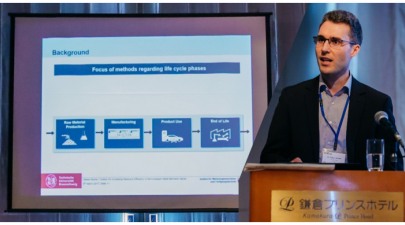
Strategies to improve the economic and environmental performance of companies are usually pursued on a limited scale, rarely considering interactions across the entire value chain. Besides, each method uses different data and Key Performance Indicators, making it more difficult to compare the respective results. This is why global improvements of industrial processes are rarely achieved.
To solve these shortcomings, the MEMAN project has developed an integrated methodology that, for the first time, covers both company and value chain levels to reveal hidden resource saving potentials on a global scale. The methodology comprises the development of a decision-making toolbox that helps companies to assess and decide about strategies to improve their resource efficiency.
At the CIRP Conference on Life Cycle Engineering in Kamakura (Japan) held in March this year, Stefan Blume, from the Technical University of Braunschweig (Germany), underlined: “There are several approaches to improve resource efficiency in manufacturing that focus on different time scales or factory levels, resources and environmental impacts. But all these methods are usually applied in an isolated way and for a specific purpose. The toolbox we developed in MEMAN combines all complementary existing methods into one coherent and seamless approach. This is a tremendous improvement to close the loop in a more ‘circular’ manufacturing industry”.
The case of the metal mechanic sector
The toolbox has been tested in real-life cases from the European metal-mechanic industry. One of the chosen products is a hard chrome plated piston rod made from steel billets, which is widely used in hydraulic components such as caterpillars or cranes.
MEMAN experts used the toolbox to assess the current factory and value chain performance. The analysis revealed the inefficiencies in the current manufacturing processes and highlighted possible improvement measures to reduce raw materials, energy, water and waste.
By reducing the use of resources and improving process efficiency, MEMAN will help manufacturing companies to achieve long-term cost savings and staying competitive on the global markets, while living up to the EU’s climate ambition. As the methodology and toolbox applied in MEMAN are transferrable to other value chains and even other industrial sectors, the project lays the basis for significant improvements in global industrial resource demands.
The paper on the MEMAN decision-making toolbox, presented at the CIRP Conference on Life Cycle Engineering in Kamakura (Japan), is available on ScienceDirect with open access.
For more information, please contact:
Stefan Blume (Stefan.Blume@tu-braunschweig.de)
Valeria Mazzagatti (valeria.mazzagatti@greenovate.eu)